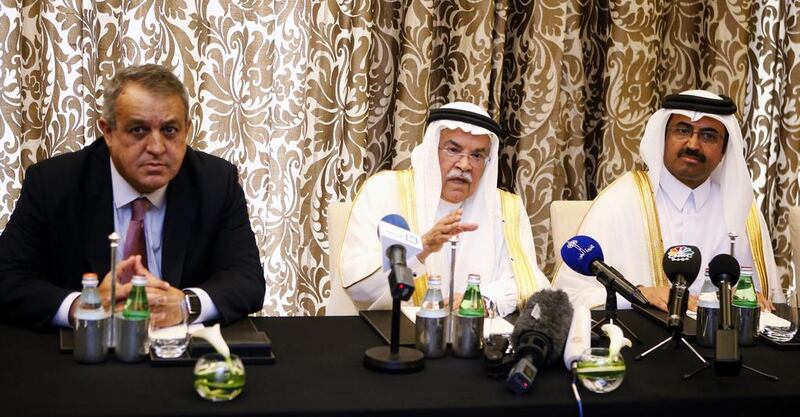Russia and Saudi Arabia, the world’s largest oil producers, have agreed to freeze production at January levels in a bid to prevent further declines in prices, which scraped 12-year lows last month.
At a closed-door meeting in Doha, which also included ministers from Qatar and Venezuela, Saudi oil minister Ali Al Naimi agreed to end the Opec policy of unrestricted pumping, which has sent prices plummeting to below US$30 a barrel since June 2014 highs of $110.
The Organisation of Petroleum Exporting Countries’ January output, at 33.1 million barrels a day, was its highest ever, meaning that any impact on the oil price from the freeze is likely to be small. Russia, which is not a member of Opec, produced 10.9 million barrels a day that month, its highest level in history.
But the move represents a shift away from the policy adopted at Opec’s December meeting, when the group scrapped production caps altogether.
“Freezing now at the January level is adequate for the market, we believe,” Mr Al Naimi said. “We recognise today the supply is going down because of current prices. We also recognise that demand is on the rise.”
“It is the beginning of a process which we will assess in the next few months and decide if we need other steps to stabilise and improve the market,” he said.
The four country’s oil ministers said that the deal would depend on other oil producers, including Iran, also agreeing to freeze production.
Sanctions on Iran ended in early January, allowing the country to ramp up oil production. Bijan Namdar Zaganeh, Iran’s oil minister, has repeatedly insisted that it does not intend to cut production, as the country seeks to use revenue from sales to lift its economy out of recession.
The low oil price has caused economic pain across the Gulf, leading governments including Saudi Arabia and the UAE to cut public spending in a bid to preserve their financial reserves.
But the agreement is “unlikely to significantly alter the economic outlook for the Gulf Cooperation Council”, said Jason Tuvey, emerging markets economist at Capital Economics.
Even if all Opec members, including Iran, agree to comply with the target, high production will still keep oil prices low, depressing the economic outlook for Gulf states, he said.
abouyamourn@thenational.ae
* with reporting by Reuters
Follow The National's Business section on Twitter





